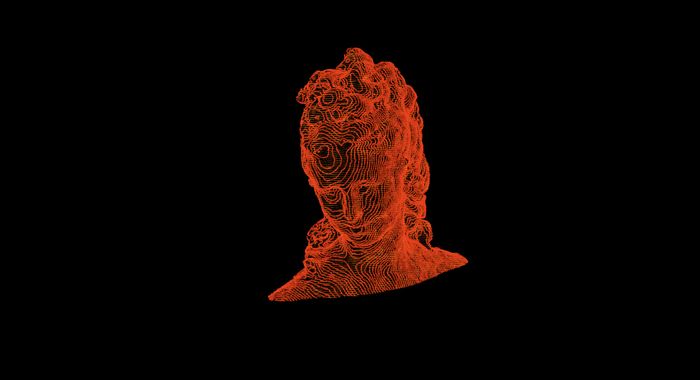One from the archive: Yesterday, a film.
A Film by Michael Salu. 36 mins single channel, or 3 mins 12 channel multiscreen installation. 2014 Cinematography by Jacob Robinson
Yesterday
A Film by Michael Salu.
36 mins single channel, or 3 mins 12 channel multiscreen installation. 2014
Cinematography by Jacob Robinson.
“One may say that the Negro in America does not really exist, except in the darkness of our minds.”
James Baldwin
Shot in a single unscripted take, Yesterday is personal reflection on the hypersexualised and lucrative commodity of the black male image. Globally, yet most explicitly in America, the image or representation of the black male forms many of the building blocks of the economic infrastructure and gains of today’s consumer class. From a privatised penitentiary system, right through to corporate conglomerates such as Apple, the image and the narrative of the black male is that of an indefatigable commodity within the American dream. This is probably most explicitly witnessed within the evolution of Hip Hop over the last twenty years from street-level oratory urgency and anger to becoming the defacto, benign middle class corporatised ‘urbanity’. High fashion's appropriation of said urbanity and even the proliferation of ‘ebonics’ within internet vernacular also adds to this discourse of a perpetually prolific commodification.
Yet, but no different to ‘yesterday’, the black male image is almost completely disconnected from its lucrative economic value, increasingly so today given the top heavy trickle down from the large corporations buying up the language of the street and reselling their own voices back to them at a 500% mark up. Brilliantly re-affirming the unattainability of the American Dream.
The sheen of high fashion markets the parallel tropes of fear and desire of the black image back to us, the broader consumer market led principally by white male patriarchy allow us to consume this image, adopt its stance and its language, without ever really thinking about its restricted social or economic position within our globalised consumer society. The ‘Thug Life’ meme phenomena is an acute observation of this reality.
The sheen of high production and inevitable inherently politicised sexuality also masks the core experience within this film. We do not see this male’s real experiences beyond the mediatised (desired or demonised) version of him. We do not see him vulnerable, or lonely, or even just having a haircut. Even the hair that is being cut comes with an inherent mystery still prevalent in conversation as why try to understand what dreadlocks are.
The film could only be really made once, as such a ritual would take another ten years or so to reproduce organically calling into question the relevance of materiality or authenticity. The ritual itself takes a flagellatory stance, questioning the codes of representation and ultimately the futility of chasing a visual representation of identity within an image culture the black male has little control of.
Asked within the film through its length, subject and static frame, is whether socio-economic position of blackness is escapable? Can there ever be a psychological reprieve from something systematically part of the foundations of how our modern world was built? Can you sit with this film through its banal duration and maybe also reflect on that which is inescapable from the black male who can not click away or close the browser window, as witnessed in the lives of many and those we’ve seen through the mediatised filter witness their own end through this hegemony. Eric Garner. Michael Brown. Trayvon Martin. They were clearly not cut in on the deal and nor could they just look away.
http://yesterdays-film.com
Yesterday at The Great Wall of Oakland, December 2016
Yesterday
Three colour screen print.
Editions 1 of 2
Size 150 cm x 100 cm

